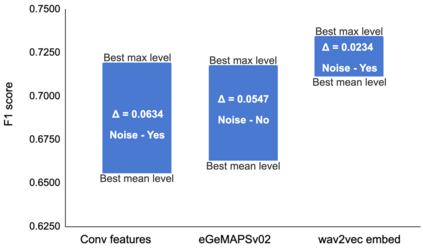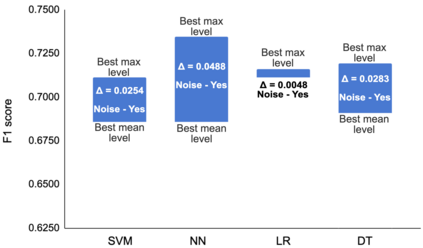Research related to automatically detecting Alzheimer's disease (AD) is important, given the high prevalence of AD and the high cost of traditional methods. Since AD significantly affects the acoustics of spontaneous speech, speech processing and machine learning (ML) provide promising techniques for reliably detecting AD. However, speech audio may be affected by different types of background noise and it is important to understand how the noise influences the accuracy of ML models detecting AD from speech. In this paper, we study the effect of fifteen types of environmental noise from five different categories on the performance of four ML models trained with three types of acoustic representations. We perform a thorough analysis showing how ML models and acoustic features are affected by different types of acoustic noise. We show that acoustic noise is not necessarily harmful - certain types of noise are beneficial for AD detection models and help increasing accuracy by up to 4.8\%. We provide recommendations on how to utilize acoustic noise in order to achieve the best performance results with the ML models deployed in real world.
翻译:与自动检测阿尔茨海默氏病(AD)有关的研究十分重要,因为AD的流行程度很高,传统方法的成本也很高。由于AD严重影响自发语音、语音处理和机器学习的声学,因此提供了可靠检测AD的有希望的技术。然而,语音听觉可能受到不同类型背景噪音的影响,了解噪音如何影响从言语中检测AD的ML模型的准确性非常重要。在本文件中,我们研究了五类不同类别的十五种环境噪音对经过三种声学表现培训的四个ML模型的性能的影响。我们进行了透彻分析,显示ML模型和声学特征如何受到不同类型声响的影响。我们表明,声学噪音不一定有害----某些类型的噪音有利于AD检测模型,并有助于通过多达4.8 ⁇ 提高准确性。我们就如何利用声噪声以取得在现实世界中部署的ML模型的最佳性能结果提出了建议。







